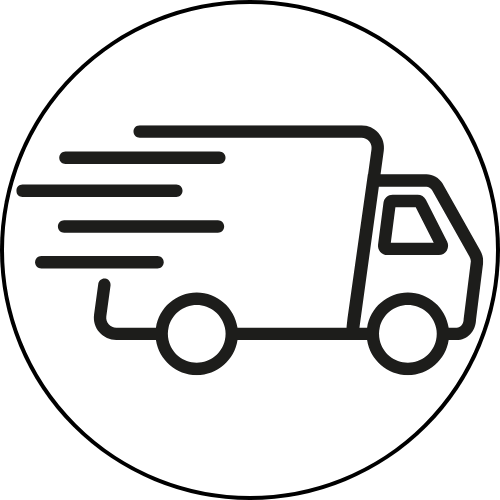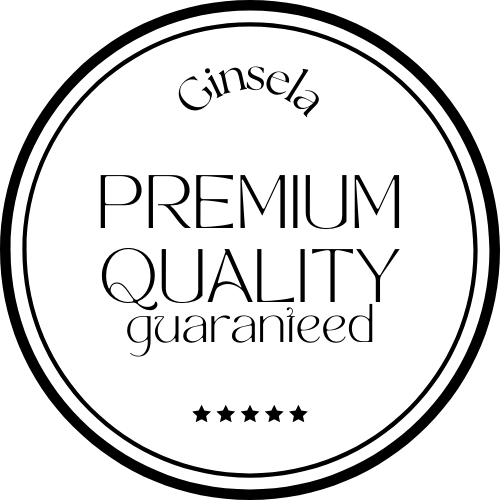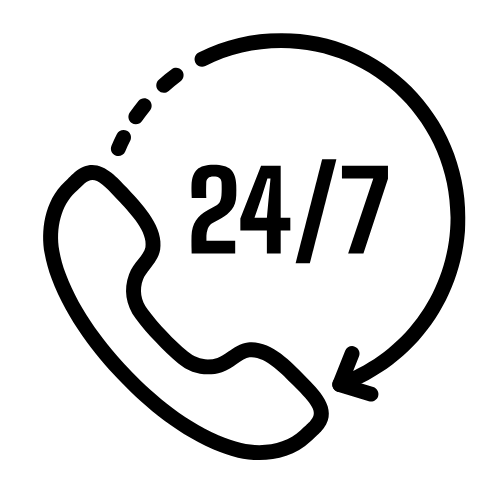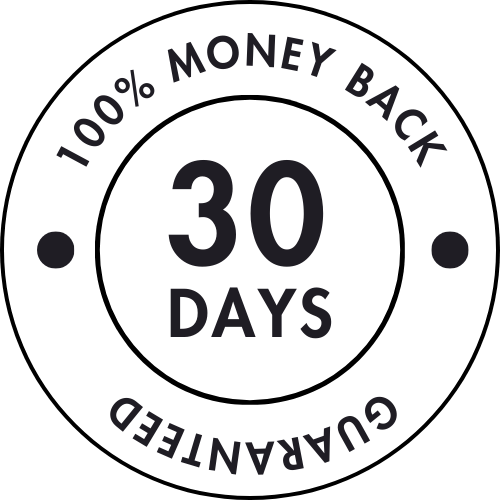TL;DR
For thicker, stronger hair without pills, focus on protein (keratin building blocks), iron (oxygen delivery), zinc (follicle cycling), vitamin D (follicle biology), vitamin C (boosts iron absorption + collagen), and omega-3s (anti-inflammatory support). Food-based intake is linked to better density, strength, and reduced shedding. Supplements are only needed for lab-confirmed deficiencies. Pair your diet with Ginsela Botanical Hair Growth Serum for enhanced results. American Academy of Dermatology, PMC, PubMed, Office of Dietary Supplements
Story: Ayesha’s Path to Thicker Hair
Ayesha tried every “miracle” shampoo, but her ponytail kept thinning. Her dermatologist didn’t prescribe a serum—she asked about Ayesha’s meals and ordered labs for iron, zinc, and vitamin D. Two were low. Instead of supplements, Ayesha rebuilt her breakfast with protein-rich foods, added oily fish twice weekly for omega-3s, paired iron-rich foods with vitamin C, and rotated zinc sources like pumpkin seeds and chickpeas. Three months later, she noticed fewer hairs in her brush and “baby hairs” along her hairline—signs her follicles were thriving. Today, Ayesha sticks to a food-first plan, uses Ginsela Hair Oil for Scalp Health & Growth, checks labs periodically, and knows hair improves over months, not days. American Academy of Dermatology, NCBI, PubMed, PMC
1. Why Food Matters to Your Follicles
Hair follicles are metabolically active mini-organs cycling through anagen (growth), catagen (transition), and telogen (resting) phases. Insufficient protein, iron, zinc, or vitamin D can push follicles into shedding prematurely or weaken hair shafts. Dermatology research identifies low intake of these nutrients as correctable causes of hair loss, with regrowth often following proper nutrition. Before reaching for “hair vitamins,” prioritize a nutrient-rich diet and consult a clinician for lab tests. American Academy of Dermatology
Pro Tip: Complement your diet with Ginsela Moisturizing & Strengthening Hair Oil to nourish the scalp externally while you optimize nutrition.
2. The Big Six Nutrients for Thicker, Stronger Hair (from Food)
A) Protein — Keratin Building Blocks
- Why it helps: Hair is mostly keratin, a protein. Low protein intake from crash diets or poor nutrition can thin hair and slow growth.
- Food wins: Eggs, Greek yogurt, cottage cheese, chicken, fish, tofu/tempeh, lentils, beans.
- How to use: Aim for ~20–30 g protein per meal; prioritize breakfast to support keratin synthesis all day.
B) Iron — Oxygen Delivery to Follicles
- Why it helps: Iron deficiency, with or without anemia, is linked to diffuse shedding; ferritin levels reflect iron stores.
- Food wins: Heme iron (beef, lamb, liver, sardines); non-heme iron (lentils, chickpeas, spinach).
- Absorption hack: Pair plant iron with vitamin C (citrus, bell peppers) or heme foods to boost uptake. Office of Dietary Supplements, NCBI
C) Zinc — Follicle Cycling & Recovery
- Why it helps: Zinc supports cell division and protein synthesis in follicles; deficiency causes alopecia, reversible with repletion.
- Food wins: Oysters, beef, pumpkin seeds, chickpeas, fortified cereals.
- Note: Avoid excess zinc to prevent copper imbalance. PubMed, PMC
D) Vitamin D — Follicle Biology & Immune Modulation
- Why it helps: Low vitamin D is associated with alopecia areata and female pattern hair loss; repletion is standard for deficiencies.
- Food wins: Salmon, sardines, egg yolks, UV-exposed mushrooms, fortified milk/alt-milk; plus sensible sun exposure.
- Note: Check levels if indoors often. PMC
E) Vitamin C — Collagen & Iron Absorption
- Why it helps: Supports collagen formation in the scalp and boosts non-heme iron absorption, critical for plant-based diets.
- Food wins: Citrus, guava, strawberries, kiwi, bell peppers, broccoli.
- Note: Essential for vegetarians/vegans relying on non-heme iron. Office of Dietary Supplements
F) Omega-3s — Anti-Inflammatory Support
- Why it helps: Omega-3/6 with antioxidants improved hair density and reduced telogen phase in a 6-month women’s study.
- Food wins: Salmon, mackerel, sardines, herring; plant ALA from chia, flaxseed, walnuts.
- Note: Aim for oily fish 2–3x/week. PubMed
Biotin Note: True biotin deficiency is rare and causes hair loss, but high-dose supplements lack strong evidence and may distort lab tests. Stick to food sources like eggs or salmon unless deficiency is confirmed. U.S. Food and Drug Administration
3. Food-First vs. Supplements (and Why “More” Can Backfire)
| Factor | Whole Foods | Supplements |
|---|---|---|
| Absorption | Co-nutrients improve uptake | Form-dependent |
| Safety | Low overdose risk | Overuse risk (A, Se, Zn) |
| Breadth | Protein + vitamins + fiber | Isolated actives |
| Best Use | Daily baseline | Lab-confirmed gaps |
Caution: Excess vitamin A or selenium can cause hair loss; zinc overuse may disrupt copper. Use supplements like Ginsela Peptide Hair Growth Serum for topical support, but keep oral supplements targeted and clinician-supervised. Office of Dietary Supplements
4. The Hair-Healthy Plate (How-To)
- Anchor with protein: Choose eggs, fish, dairy, tofu/tempeh, or legumes at each meal.
- Add an iron source: Rotate heme (beef, lamb, sardines) and non-heme (lentils, chickpeas, spinach).
- Pair with vitamin C: Add citrus, kiwi, or bell peppers to non-heme meals. Office of Dietary Supplements
- Dose omega-3s weekly: Include oily fish 2–3 times/week or chia/flax for plant-based diets. PubMed
- Mind vitamin D: Use fortified milk/alt-milk or eggs; test levels if indoors often. PMC
- Repeat for 12–16 weeks: Hair growth is slow; evaluate seasonally. PMC
5. 10 Easy, Hair-Positive Meal Ideas
- Salmon + Citrus Quinoa Bowl: Salmon (protein, vitamin D, omega-3), quinoa, spinach, orange segments; olive oil & lemon dressing.
- Eggs & Spinach on Toast: Eggs (protein, biotin), spinach (iron), strawberries (vitamin C).
- Lentil & Pumpkin Seed Tacos: Lentils (iron), pepitas (zinc), lime slaw (vitamin C).
- Sardine Lemon Toasts: Sardines (omega-3, vitamin D), capers, parsley, whole-grain toast.
- Chickpea-Spinach Coconut Curry: Chickpeas (zinc), spinach (iron), brown rice, lime (vitamin C).
- Greek Yogurt, Berries & Chia: Protein, vitamin C, plant omega-3.
- Beef & Broccoli Stir-Fry: Heme iron, vitamin C veg, sesame & ginger.
- Tofu & Bell-Pepper Stir-Fry: Plant protein, vitamin C, rice.
- Mackerel with Tomato-Pepper Salad: Oily fish, vitamin C synergy.
- Kale, Orange & Chickpea Salad: Iron, vitamin C, zinc in one bowl.
6. A One-Week Hair-Nutrition Framework
Monday: Yogurt-berry-chia (breakfast), Salmon + Citrus Quinoa Bowl (lunch), Sardine Lemon Toasts (snack).
Tuesday: Vegetable omelet (breakfast), Lentil & Pumpkin Seed Tacos (lunch), Citrus fruit (snack).
Wednesday: Oatmeal with nuts (breakfast), Beef & Broccoli Stir-Fry (dinner), Kefir (snack).
Thursday: Smoothie (spinach, kefir, berries) (breakfast), Chickpea-Spinach Coconut Curry (dinner), Dark chocolate (snack).
Friday: Cottage cheese with fruit (breakfast), Tofu & Bell-Pepper Stir-Fry (lunch), Pumpkin seeds (snack).
Saturday: Eggs with greens (breakfast), Leftovers with salad (lunch), Orange/kiwi (snack).
Sunday: Roast chicken (dinner), Kale, Orange & Chickpea Salad (lunch), Fortified milk/alt-milk (snack).
7. Why You Should Buy-In to a Food-First Hair Plan
| Benefit | Why It Matters |
|---|---|
| Safer Baseline | Low toxicity vs. high-dose pills |
| Synergy | Vitamin C boosts iron; fish adds D + omega-3 |
| Whole-Body Wins | Better energy, skin, nails, immunity |
| Sustainable | Groceries beat stacks of bottles |
| Evidence-Aligned | Correct deficiencies; don’t megadose |
8. FAQs
- Which single nutrient matters most? Depends on your gap. Iron is critical for menstruating individuals; vitamin D deficiency is common. Test to confirm. Office of Dietary Supplements, PMC
- Do I need a hair vitamin? Only if labs show deficiency (iron, zinc, D, rarely biotin). Food-first is safer. American Academy of Dermatology
- Do omega-3s really help? A 6-month study showed improved density in women with omega-3/6 + antioxidants. Prioritize food sources. PubMed
- Is biotin necessary? True deficiency is rare; high doses can interfere with lab tests. U.S. Food and Drug Administration
- Can too much of some vitamins cause hair loss? Yes—excess vitamin A and selenium are linked to hair loss. Office of Dietary Supplements
9. How-To: Build a “Hair Plate”
- Pick a protein (eggs, fish, tofu, yogurt, lentils).
- Add an iron source (beef, sardines, spinach, chickpeas).
- Include vitamin C (citrus, berries, peppers) with plant iron. Office of Dietary Supplements
- Add omega-3 twice weekly (salmon, mackerel; or chia/flax). PubMed
- Layer greens most days (spinach/kale).
- Choose olive oil over ultra-processed fats.
- Keep fortified milk/alt-milk or eggs for vitamin D. PMC
- Reassess in 12–16 weeks; consult for labs if shedding persists. PMC
10. Comparison Table — Iron Sources
| Source | Type | Serving Idea |
|---|---|---|
| Beef, lamb, sardines | Heme | Stir-fry, toast, salad |
| Lentils, chickpeas | Non-heme | Curry, tacos, soups |
| Spinach, kale | Non-heme | Omelet, smoothie, sauté |
| Fortified cereals | Non-heme | With berries (vitamin C) |
| Pumpkin seeds | Non-heme + zinc | Snack/salad topper |
11. Key Safety Notes
- Test, don’t guess: For new or severe hair loss, see a clinician for iron, zinc, vitamin D labs. Cleveland Clinic
- Beware megadoses: Excess vitamin A, selenium, or zinc can cause hair loss. Use food-level doses unless prescribed. Office of Dietary Supplements
- Enhance with topicals: Support your diet with Ginsela Peptide Hair Growth Serum for targeted follicle nourishment.
12. Key Points Recap
- Protein, iron, zinc, vitamin D, vitamin C, and omega-3s drive thicker, stronger hair. American Academy of Dermatology, PMC
- Food-first delivers co-factors (e.g., vitamin C with iron) and avoids toxicity risks. Office of Dietary Supplements
- Fix lab-confirmed gaps (iron, zinc, D) with medical guidance; expect 12–16 weeks for results. American Academy of Dermatology, PMC
- Omega-3s improve density in some women; prioritize oily fish 2–3x/week. PubMed
- Avoid megadoses (vitamin A, selenium, zinc); biotin only if deficient and disclose before tests. Office of Dietary Supplements, U.S. Food and Drug Administration











